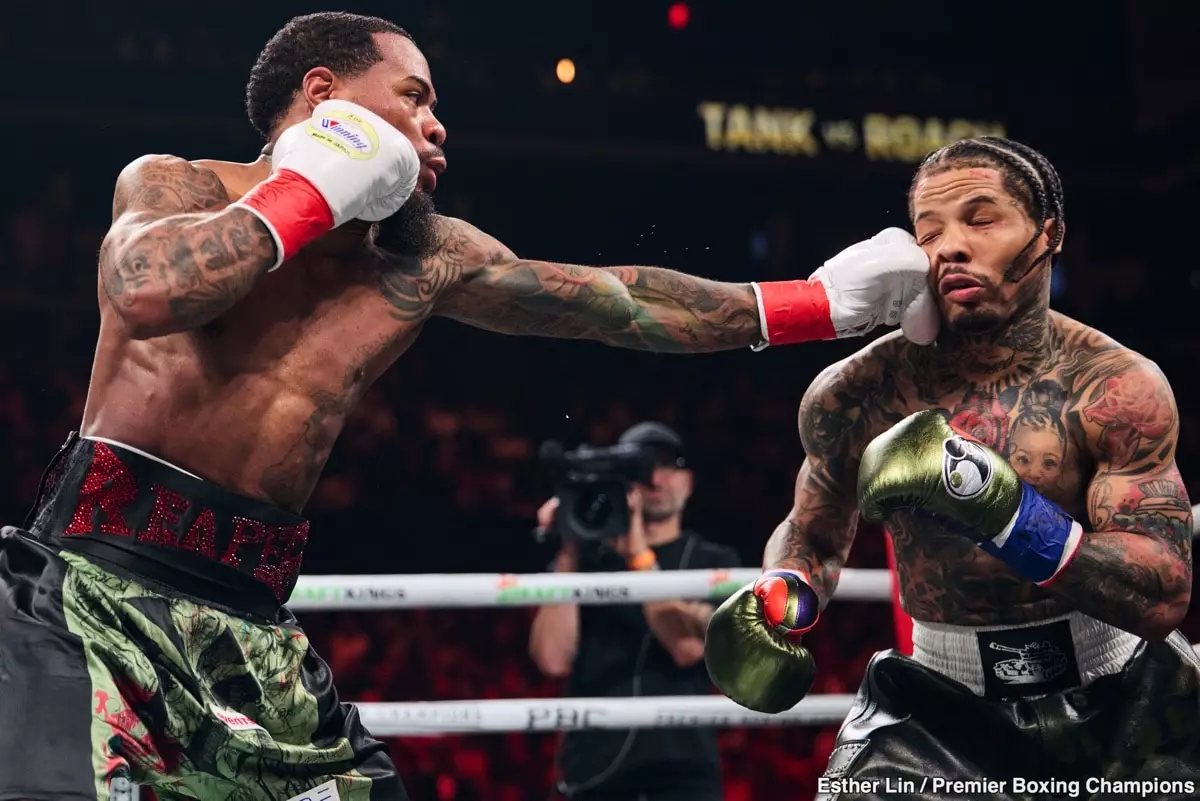In the world of combat sports, where genuine athletic prowess often gets overshadowed by buzz and marketing, the upcoming clash between Gervonta “Tank” Davis and Jake Paul epitomizes this phenomenon. Promoted as a blockbuster event on Netflix, this exhibition has all the makings of a spectacle designed to captivate audiences rather than produce meaningful boxing battles. While Tank undeniably holds a significant advantage in technical skill and experience—being a reigning WBA lightweight champion—the fight’s real entertainment value hinges on the charisma and bravado of Jake Paul. His relentless self-promotion and ability to draw viewers often cloud the reality: that beneath the hype lies a contest unlikely to redefine the sport or showcase true boxing mastery.
This matchup is emblematic of boxing’s ongoing struggle to balance entertainment with integrity. Davis, a lethal puncher recognized for his speed and technical precision, has publicly expressed boredom with the sport’s current landscape—possibly seeking paydays over legacy. Meanwhile, Paul, a social media influencer turned boxer, leverages controversy and spectacle to stage events that generate revenue and buzz. The reality is: the result of this exhibition, regardless of who claims victory, will leave the sport unchanged. The fight’s primary purpose appears to be spectacle, capitalizing on viral moments rather than advancing boxing’s craft or history. This raises an overarching question—how much of boxing today is driven by artistry, and how much by the allure of entertainment?
Clout Over Competence: The Cost of Prioritizing Fame
Beyond the ring, a deeper story unfolds—a narrative of opportunism and compromise. Gervonta Davis’s focus on lucrative fights and larger-than-life persona seem to have diverted his attention from potentially more meaningful bouts. His swerving of a rematch with Lamont Roach Jr, following a controversial draw earlier this year, exemplifies this trend. Roach, a skilled contender with a commendable record, feels abandoned and disrespected, highlighting how monetary incentives often distort genuine competition. Roach’s social media frustration, marked by a dismissive “Told ya, lol,” underscores his perception that Tank has prioritized financial gain over sporting integrity.
This decision, or lack thereof, underscores a broader crisis in modern boxing—a sport increasingly susceptible to the temptations of quick profits at the expense of legacy-building. While fighters like Davis undoubtedly possess skill, their willingness to sidestep real challenges diminishes the sport’s credibility. A real champion should embrace tough rematches and defenses to solidify their reputation, not choose easier options for immediate financial rewards. As for Roach, his next move—potentially fighting Shakur Stevenson or defending his belt at 130 pounds—may be his last hope to restore his dignity. Yet the shadow of Tank’s actions looms large, suggesting that for many fighters, amassing wealth has become more crucial than making history.
The Myth of Meritocracy in Today’s Boxing Landscape
This latest episode exposes how the boxing world’s meritocracy is often compromised by behind-the-scenes deals and the lure of TV ratings. The soundbites about “verbally agreeing” to a Stevenson fight hint at a landscape where negotiations are more about marketing and spectacle than sporting excellence. Fighters like Roach, who deserve opportunities based on merit, find themselves on hold or pushed aside in favor of more commercially appealing bouts. This wedge between genuine competition and entertainment-driven matches further dilutes boxing’s reputation.
The bigger question is: what message does this send to upcoming prospects and fans? If top contenders see established stars prioritizing payday over legacy, they may emulate this behavior, thereby perpetuating a cycle that undermines the sport’s integrity. Boxing needs authentic rivalries, tough rematches, and respect for the craft—elements that seem increasingly sidelined in a world obsessed with viral moments and pay-per-view numbers. Only by re-emphasizing these core values can boxing reclaim its status as a noble and competitive sport rather than a spectacle of sensationalism.
In Defense of Genuine Talent Amid the Commercial Chaos
Despite these criticisms, it’s essential to recognize the talent that exists within boxing. Gervonta Davis, at his best, is an exceptional fighter whose skills elevate him above many contemporaries. But talent alone is not enough; it must be paired with a commitment to honor the sport’s rich history and to challenge oneself meaningfully. Similarly, fighters like Lamont Roach Jr deserve better opportunities—not just for personal advancement but to uphold the sport’s credibility.
The current climate, however, seems to favor these superficial battles, leaving true competition sidelined. If boxing is to evolve, it must confront its own tendency to prioritize spectacle over substance. Fans crave authenticity, fierce rivalries, and difficult rematches—elements that foster growth and respect rather than fleeting notoriety. Until then, the sport will continue to be loved and criticized in equal measure, caught between its storied past and its commercially driven present.
Despite the glamorous allure of the Davis-Paul fight, the true challenge lies in fostering a culture that values genuine skill and competition above all. Only then can boxing truly reclaim its legacy and provide fans with the meaningful battles they deserve.


Leave a Reply